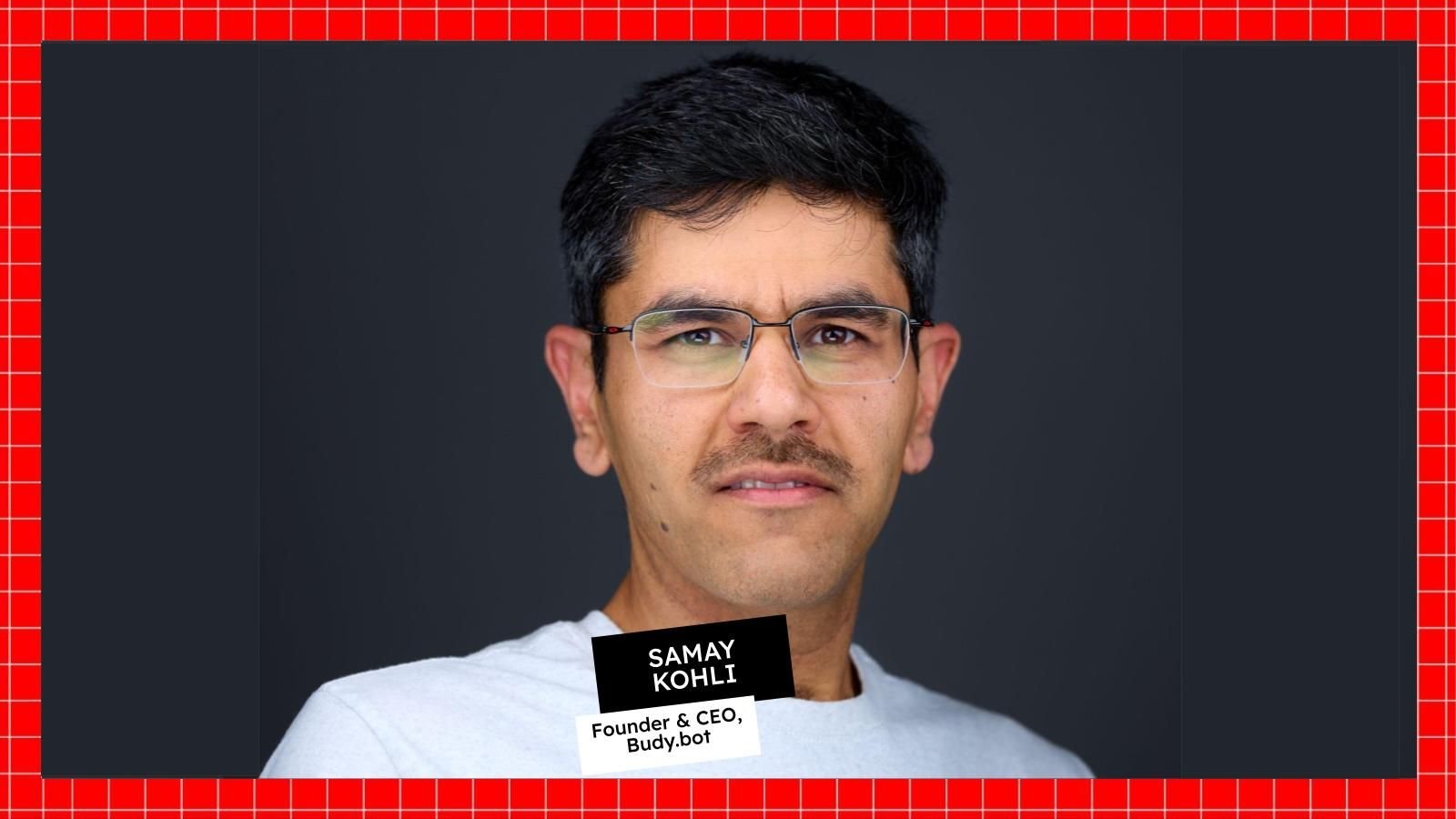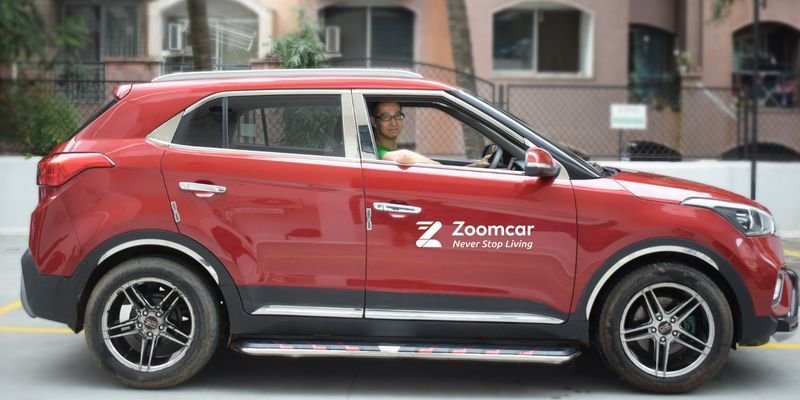Startup
Everstage raises $30M in Series B led by Eight Roads Ventures

, an enterprise sales performance management software, has raised $30 million in a Series B funding round led by , with participation from existing investors and .
With this round, the Chennai and Delaware-based company has raised a total of $45 million in funding so far. It will use the new capital to expand its product capabilities and invest in in-house professional services.
“Our Series B is not just about growth; it’s about a long-term commitment to our customers. This investment will allow us to double down on product innovation and elevate our customer experience with the highest standard of service, unlike anything the market has seen before,” said Siva Rajamani, Co-founder and CEO of Everstage.
Founded in 2020 by Rajamani and Vivek Suriyamoorthy, Everstage enables companies to boost the performance of their customer-facing teams through a no-code sales commission automation platform.
Before founding Everstage, Rajamani served as the head of ‘ global revenue operations team, where he oversaw the growth of annual recurring revenue from $30 million to $300 million.
“Everstage’s modular product helps organisations dynamically manage their evolving Sales Performance Management needs and align frontline teams with broader organisation goals. We are excited to partner with Siva and Vivek, who have assembled a strong team with extensive experience in Revenue Operations,” said Aditya Systla, Partner at Eight Roads Ventures.
Eight Roads, a global investment firm backed by Fidelity, manages $11 billion in assets across Asia, Europe, Israel, and the US. Everstage now joins the investment firm’s expanding SaaS portfolio, which includes startups such as Moengage, SaaS Labs, and Icertis, among others.
Everstage also plans to launch an AI Agent Creation Studio to assist RevOps professionals in building and customising their own AI assistants. These agents will handle tasks like sales performance analysis, plan building, and providing modelling recommendations, further streamlining sales operations.
Some of its clientele include several global Fortune 1000, publicly-listed companies and large enterprises such as GrayTV, Wiley, Diligent, Trimble and Paychex. The company in a statement said it clocked a 300% YoY revenue growth last year.
The company recently appointed Kelly McGuire as VP of Customer Success, who has over 15 years of experience from companies like Glassdoor and Sisense.
Additionally, Everstage announced an Employee Stock Ownership Plan (ESOP) buyback valued at Rs 5 crore.
Startup
Addressing healthcare disparities in rural India through technology

Health disparities in urban and rural India are not only large but also severe, and they demand immediate and urgent attention. A long-running complaint about the lack of basic medical facilities, quality healthcare professionals, and timely and accurate treatment in rural areas has been a cause of concern.
Where cities stand tall by claiming advanced healthcare systems, state-of-the-art hospitals, and a large number of special facilities, inadequate infrastructure, inadequate doctors, or no access to even the most basic medicines in rural regions are a common phenomenon.
It has created a gap that highly contributes to the poor health status of individuals in the countryside, with a high record of preventable diseases, increased maternal and infant mortality, and usually a low life expectancy. However, advances in technology have created more potential ways to address these inequalities in healthcare services.
The gap between quality healthcare and geographical location will be bridged by making quality healthcare accessible and available everywhere with the help of digital health care tools, disruptive solutions such as mobile healthcare applications, and others.
Key concerns
About 30% of the hospital beds and 50% of the health institutions are reportedly located in rural areas, which account for 67% of India’s total population. The doctor-to-patient ratio is alarmingly low in the rural setup, estimated at almost 1:25,000. According to the Worldwide Health Organization, the recommended ratio would be 1:1000.
Many villages also lack primary healthcare. The World Health Organization report shows that the total number of health workers in the country’s towns accounts for only one-third of the country’s total population; while the majority of the country’s population resides in its rural areas.
It gets worse: with healthcare professionals feeling reluctant to work there because of the poor living conditions, lack of infrastructure, and absence of full career growth opportunities. These disease conditions in the rural setup, mainly caused due to ignorance, primarily because of inadequate education, eventually lead to late diagnosis and later treatment.
Most villagers go for traditional healing by certain practitioners or self-medication, making health conditions worse. Because there are no health centers, patients have to go for medication from distant places for longer distances, which increases the prices and the time needed for treatment.
Addressing healthcare concerns with technology
Technology has the ability to revolutionise health care in India, particularly by bridging the gap between cities and villages. As digital solutions become integrated into rural ecosystems, distance, accessibility, and affordability barriers will no longer separate quality healthcare from those who need it the most. This potential for transformation should instill hope and optimism in our collective efforts to address healthcare disparities.
Telemedicine is one of the best tools for that change. Teleconsultations allow people in rural locations to communicate with doctors and specialists in urban areas without traveling, saving their time and money and ensuring timely medical advice and continuous care for chronic conditions such as diabetes, hypertension, and heart disease.
In that regard, with telemedicine being linked to primary healthcare, trained healthcare workers can reach out online to acquire virtual consultations from patients. It creates a hybrid model incorporating physical care and digital reach to provide well-rounded care to patients.
Mobile health (mHealth) services play a significant role in narrowing the gap. These applications give information about health, reminders on medication, and e-records of one’s health. They also carry educational materials on preventing diseases, maternal health, nutrition, and hygiene, among other health information, so that people take charge of their health.
For instance, pregnant women in rural areas can use an mHealth app to track their pregnancies and receive reminders for check-ups with updated information regarding childbirth and infant care. Similarly, patients suffering from chronic diseases will monitor their symptoms and medications and get tailored health recommendations through such platforms.
Digital health platforms are, therefore, crucial to streamlining healthcare delivery because they connect patients, providers, and pharmacies on a single interface. For example patients in rural areas can schedule appointments, examine laboratory results, place medicine orders and even talk with doctors remotely.
Digitising health records allows healthcare providers to easily access an individual medical history, lowering the risk of misdiagnoses while improving continuity of care. This also trains and upskills health providers in rural areas to provide more effective care with modern knowledge attained through online courses and webinars.
The Indian government has previously taken various steps to address healthcare disparities. The Ministry of Health and Family Welfare has developed several ICT initiatives, including the National Health Portal, e-Hospital @NIC, and mobile apps on vaccination tracking, disease management, and stress management.
Even telemedicine services connect remote areas through the National Telemedicine Network with healthcare services. In contrast, SATCOM-based telemedicine nodes, in association with the Department of Space, expand the reach of telemedicine. Public-private partnerships can also significantly ensure affordable digital devices, increase telemedicine facilities and increase digital literacy in rural areas.
Another tool is AI, which can be used to solve healthcare disparities. It will make possible diagnosis of diseases and predict health outcomes, thus paving the way for treatment tailored to individual patients and high-quality health care in disadvantageous regions.
AI-powered chatbots could provide real-time medical advice, helping patients of rural regions reach the healthcare professionals without moving to urban areas.This reassurance about the potential of advanced technology should inspire confidence in our ability to bridge healthcare gaps.
Technology needs to be available and affordable to bridge the healthcare gap between rural and urban India. It requires internet connectivity and the availability of a smartphone, as well as training for doctors and patients. With telemedicine, mHealth applications, digital health platforms, and AI-driven innovations, everybody can be accessed and treated regardless of their location, bringing the potential of a healthier, equitable society with regards to healthcare with it.
(Gaurav Dubey is the Founder and CEO of Livlong 365.)
(Disclaimer: The views and opinions expressed in this article are those of the author and do not necessarily reflect the views of YourStory.)
Startup
Samay Kohli’s AI venture Budy.bot raises $4.2M led by RTP Global

AI platform Budy.bot has raised $4.2 million in seed funding round led by early-stage venture capital firm .
Other participating investors include BeeNext Pte Ltd, The Neon Fund, BITS SPARK Angels, and over 15 angel investors. Among the notable angels were Raju Reddy; Abhinav Asthana, CEO and co-founder of Postman; John Hayes, co-founder of Pure Storage; Bruno Kurtic, co-founder of Sumo Logic; and several former executives of GreyOrange.
The newly-raised funds will be utilised to fuel the training and development of Budy’s core AI skills, said the company in a statement.
Founded by Samay Kohli, founder of GreyOrange, Budy.bot streamlines the deployment and management of sales and marketing software stacks for enterprises.
“My experience in my last company was that in sales and marketing today, anytime you want to do anything, you keep adding more and more apps on top of your sales and marketing stack. As a result, any growth stage company ends up using anywhere between 100 to 150 different sales and marketing apps, which is really unfortunate.. because from operations and operating point of view, it becomes so complex,” Kohli told YourStory.
By drawing his experience on scaling go-to-market strategies from $0 to $100 million in ARR, Kohli built Budy to assist growth-stage companies with annual revenues between $25 million and $200 million. These companies often face issues with setting up crucial systems and processes, like forecasting or improving sales efforts during rapid growth.
Buddy.bot is launching at a time when several industries are adopting AI agents to handle specific tasks with minimal or no human intervention, leading to significant time and cost savings.
“I spent my last decade on automation and warehouses. I thought, why don’t we look at it with the automation purview? What are the steps that can be automated and handed over to an AI agent so that the consultant can really concentrate on understanding the business, implementing the right change, and changing processes?” he explains.
“The heavy lifting of all the tasks—from setting up things, logging in, and copying—all of that stuff can be done with the AI agent. And that’s essentially what Budy does,” he said.
“The power of agents is a lot dependent on tools. Tools are all the things that an agent can call on to be able to execute any of its tasks. The specific part we are spending time on is increasingly giving it more tools. We’ve been so far focused a lot on giving it tools around Salesforce specifically. Now we have been giving it tools on how it can move data from one system to another,” said Kohli.
Currently, the company is working with select enterprise customers to tackle challenges like resetting Salesforce to fit the company’s current needs while maintaining data, improving lead conversion, and enhancing revenue and cash forecasting.
Buddy.bot is currently serving a SaaS company with $12-13 million in annual recurring revenue (ARR), which sells marketing software, and another company with $35 million ARR, which provides contact centre software to banks.
“This investment aligns perfectly with RTP Global’s focus on backing visionary founders in transformative sectors like AI. We believe founders with bold ideas can redefine industries, and supporting them early is crucial for driving innovation,” said Nishit Garg, Partner at RTP Global.
Startup
Zoomcar announces debt restructuring with focus on financial stability

Self-drive car sharing platform is undergoing debt restructuring to reduce its outstanding debt of approximately $31 million as of June 30, 2024.
The company has negotiated with lenders and vendors to reduce 75% of their immediately payable debt, either allowing a deferred payment schedule of up to 24 months or reducing payouts by up to half in a short term.
It plans to finish its exercise by November 2024 to decrease cash outflow and invest in strategic initiatives for long-term sustainability and value for all stakeholders.
“Zoomcar’s business fundamentals are strong, and this debt restructuring is an important step towards positioning the company for long-term success. We are very grateful to all our partners who have stood by us and supported us in our debt restructuring endeavor showcasing their commitment towards our growth,” said Hiroshi Nishijima, CEO of Zoomcar.
“Our focus remains on sustainable growth and fulfilling our financial obligations, which is key to maintaining trust with our partners and customers,” he added.
Zoomcar, founded in 2013, offers car rental services in Bengaluru. It offers hourly, daily, weekly, or monthly rentals. The company has received investments from Peak XV, Ford Smart Mobility, Nexus Venture Partners, and Mahindra & Mahindra.
Recently, It launched a new app with over 100 new features for guests and hosts. The app offers faster booking experiences, top-rated cars, and guest favourites. Hosts can now control their listings, have flexible booking options, and automatically extend listings. New hosts can also use GPS trackers and keyless entry devices.
-

 Startup Stories1 year ago
Startup Stories1 year agoWhy Millennials, GenZs Are Riding The Investment Tech Wave In India
-

 Startup Stories1 year ago
Startup Stories1 year agoStartups That Caught Our Eyes In September 2023
-

 Startup Stories1 year ago
Startup Stories1 year agoHow Raaho Is Using Tech To Transform India’s Fragmented Commercial Trucking
-

 Startup Stories11 months ago
Startup Stories11 months agoMeet The 10 Indian Startup Gems In The Indian Jewellery Industry’s Crown
-

 Crptocurrency8 months ago
Crptocurrency8 months agoLither is Making Crypto Safe, Fun, and Profitable for Everyone!
-

 Startup Stories1 year ago
Startup Stories1 year agoHow Volt Money Is Unlocking The Value Of Mutual Funds With Secured Lending
-

 E-commerce1 year ago
E-commerce1 year agoTop Online Couponing Trends To Watch Out For In 2016
-

 Startup Stories1 year ago
Startup Stories1 year agoWhy Moscow-Based Kladana Considers Indian SME Sector As The Next Big Market For Cloud Computing




